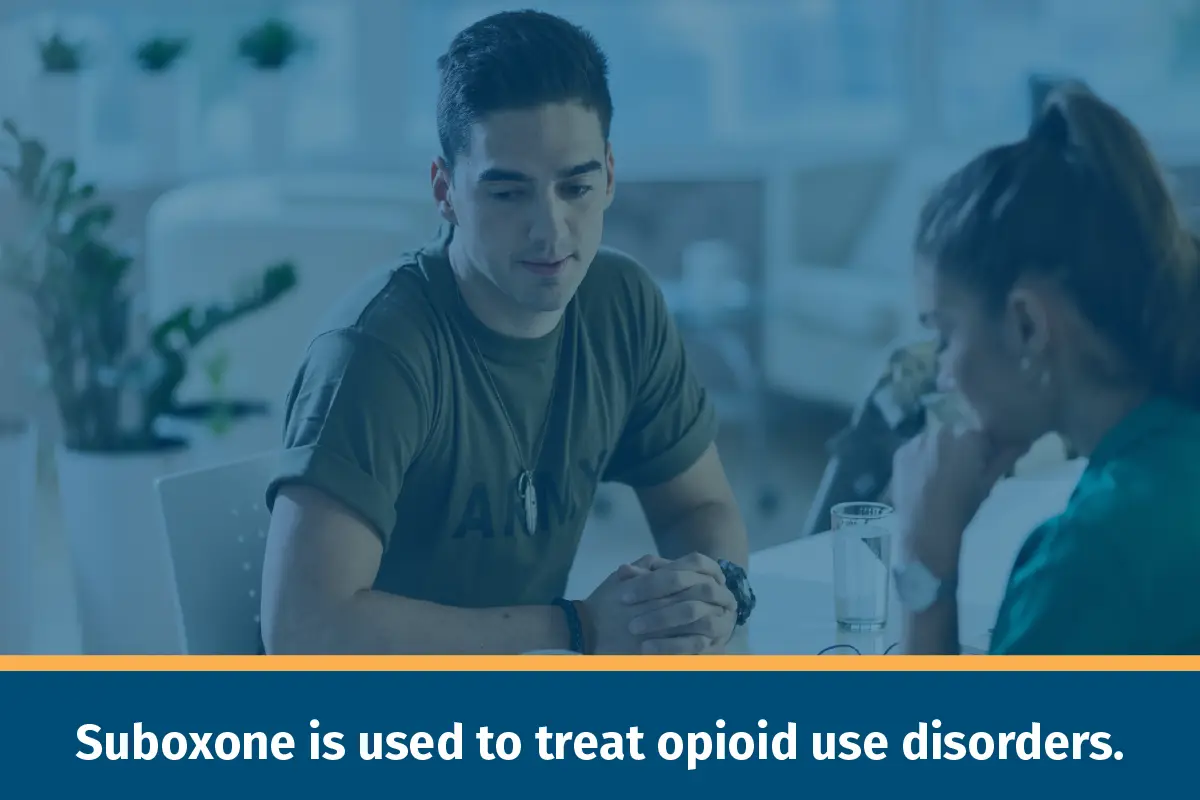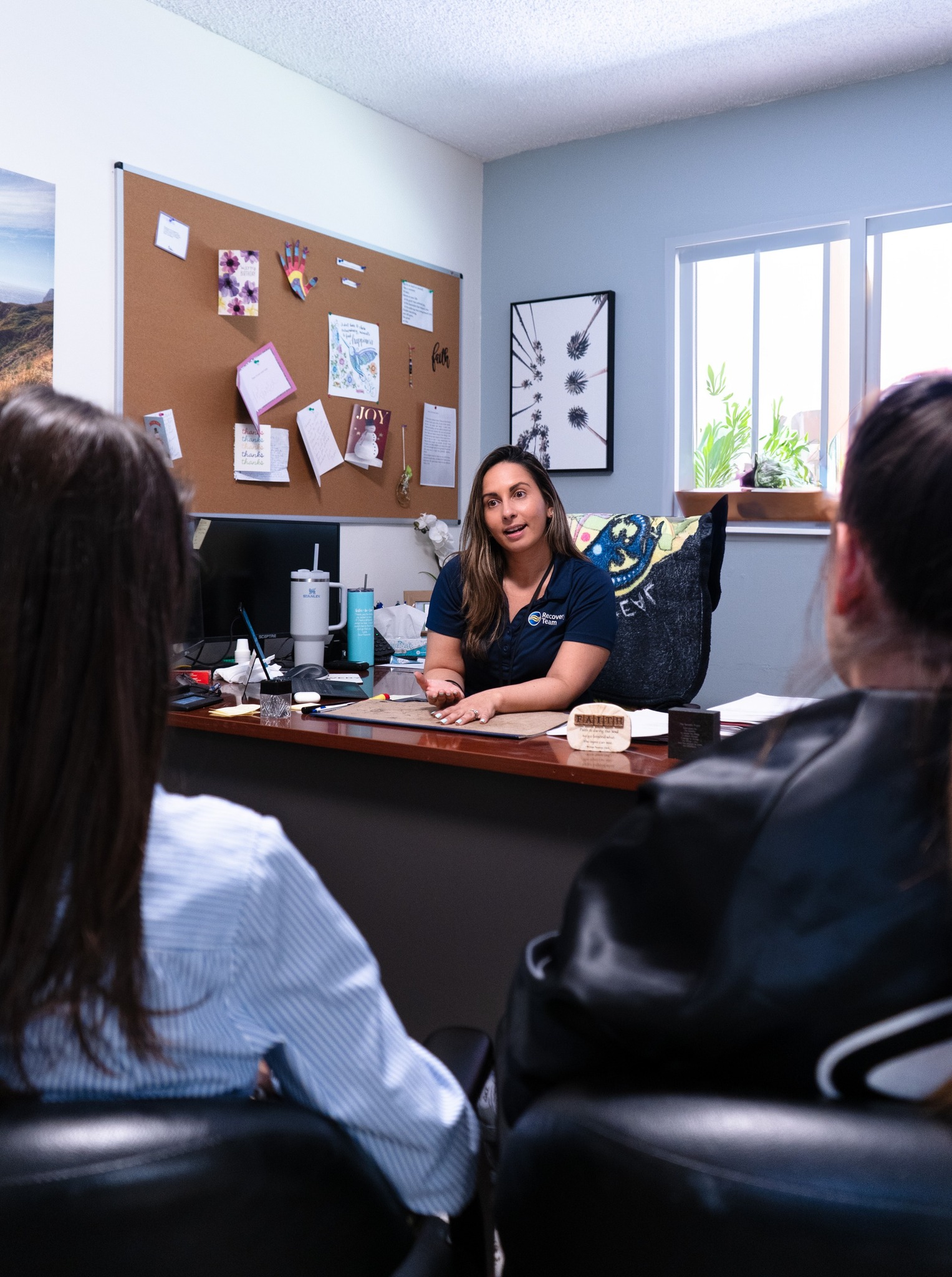Suboxone Treatment
Related Pages
Call us today to get the support and guidance you deserve.
Understanding Suboxone Addiction: Signs, Effects, and Treatment
A prescription drug called Suboxone is used to treat opioid use disorder. It can reduce the signs of suboxone withdrawal and relieve cravings. It can be abused, though, if someone does not take it exactly as their doctor instructs.
Most patients who use Suboxone do so to aid in recovery from opioid use disorder. It is an opioid narcotic Buprenorphine-based drug with a mixture of Buprenorphine and Naloxone that is used to deal with people in recovery from opiate or opioid abuse.
Key Takeaways
Symptoms of Suboxone Addiction
- Blurred vision
- Chills
- Anxiety
- Dizziness
- Fatigue
- Loss consciousness
- Loss of coordination
- Constricted pupils
- Confusion
- Headaches
- Sweating
- Stomach pain
- Slurred speech
- Nausea and vomiting
Most insurance plans cover treatment here, making the cost to you as low as possible - sometimes even zero.






Understanding the Risks of Suboxone Addiction
Suboxone is a vital tool in opioid addiction treatment, but it carries potential risks if misused. Factors such as family history, mental health conditions, social pressures, and lack of support can increase the likelihood of dependence. Using high doses, combining Suboxone with other substances, or obtaining it illegally also heightens the risk of addiction. Recognizing these risk factors and following medical guidance can help prevent misuse and support safe, effective treatment.
Family history may have an impact on how Suboxone addiction develops. People with a family history of addiction are more likely to form a habit of Suboxone or other substances.
A family habitat that normalizes drug use or exposure to drugs at a young age can be harmful. Suboxone addiction may also be more likely to grow in people’s mental health issues in a family history.
Suboxone is listed as a category III limited substance by the Drug Enforcement Administration (DEA). Drugs that fall under Schedule III have a moderate to low risk of leading to physical or mental dependence.
Buprenorphine in Suboxone has modest side effects, a slow onset, and a long half-life. Because of this, it is less addictive than morphine, heroin, and other opioids.
There is less chance of addiction, according to a National Alliance of Advocates for Buprenorphine Treatment.
They also state that any addiction or habit can be treated by reducing the dose as the patient advances through therapy, despite the drug’s use in opioid addiction.
Thus, there is a low to moderate risk that Suboxone will alter a person’s brain chemistry and make them crave more of the drug.
Suboxone is a prescription drug. It means that it can only be obtained legally with a prescription from a healthcare provider.
However, the availability of Suboxone on the black market can be a risk factor for addiction. People may obtain it illegally and use it constantly. It can increase the risk of addiction and other risky side effects.
It’s vital only to take Suboxone as directed by a healthcare provider and to not purchase or use it from illegal sources.
If you or anyone you love is facing Suboxone addiction, it’s vital to seek help from a medical professional. Many treatment options include medication-assisted treatment, behavioral therapy, and support groups for people. Stay away from the illegal use of the drug.
Social pressure can also play a role in the risk of Suboxone addiction. For example, if someone is close with friends or peers who use Suboxone for fun or encourage its use, they may be more likely to abuse it themselves.
In addition, peer pressure to fit in or be taken can lead someone to use Suboxone even if they don’t need it for medical reasons.
It’s important to understand that using Suboxone without a prescription or outside of the guidance of a healthcare provider can be risky and lead to addiction.
Suppose you or someone you know is facing social pressure to use Suboxone. In that case, seek support from friends and family who care about your well-being and talk to a healthcare provider about safe and effective ways to manage underlying medical conditions.
Lack of support can also be a risk factor for Suboxone addiction. If someone doesn’t have a robust support system, they are more likely to turn to substance abuse.
In addition, a lack of support can make it harder for someone to stay on track with their treatment and recovery, leading to a greater risk of relapse.
It’s vital to reach out to community resources, such as support groups or therapy, to build a network of people who care and can offer help.

What to Expect in Suboxone Treatment
Whether you need the structure and support of 24/7 inpatient care or the flexibility of outpatient treatment, there’s an option that fits your needs. Every program combines therapy, counseling, and ongoing support to help you regain stability and move forward with confidence.
Personalized care focuses on your physical, emotional, and mental well-being, giving you the tools to break free from Suboxone addiction and build a healthier, more fulfilling life.
Medical Detox and Withdrawal Management
Supervised detox helps ease withdrawal symptoms and safely transition into treatment.
Comprehensive Therapy and Counseling
Therapy, including behavioral and family counseling, builds coping skills and emotional stability.
Inpatient and Outpatient Treatment Options
Residential and outpatient programs offer personalized care, therapy, and support.
Ongoing Support and Long-Term Recovery
Aftercare, support groups, and healthy habits help maintain sobriety and prevent relapse.
Get Your Questions Answered
Navigating the journey to recovery can bring up many questions. Below are some of the most commonly asked questions about our services. If you need more information or have additional questions, we are only a phone call away.

While some may attempt to quit alone, withdrawal can be unpredictable and difficult. Professional treatment offers a structured, safer approach with medical supervision.
No. Addiction is a medical condition, not a personal weakness. Seeking help shows courage and commitment to a better future.
You’ll never be forced to share anything you’re not ready for. Treatment focuses on helping you at your own pace in a supportive environment.
Give us a 5-minute call for more information about our services. There is no commitment or judgement – we’ve been there before ourselves.
Contact us for more information :
Call Us
(800) 817-1247
Verify Insurance
100% Confidential
